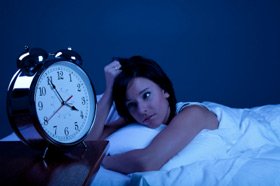Insomnia Disorder and Sleep Apnea
How to cope with insomnia disorder when you already have sleep apnea?

Insomnia disorder is a remarkably common complaint, defined as having trouble falling asleep or staying asleep.Almost every adult suffers from it at some stage in their life.
If you ever feel stressed in situations such as traumatic events, family pressures or work, you probably had trouble sleeping that night.
However, there are situations where insomnia appear due to another disorder or medications.
This type of insomnia is more severe, being defined as having symptoms at least two or three nights per week for more than one month.
Causes of Insomnia Disorder
The risk factors that can cause insomnia are one or more of the following:
- Mood disorders - it is very likely to have chronic insomnia if you have a mood disorder, like depression or anxiety disorders.
- neurological disorders such as Alzheimer or Parkinson can have as a symptom insomnia disorder.
- other disease or disorder that can affect your sleep, such as asthma or arthritis.
- medications that can cause insomnia, such as dopamine, serotonin, amphetamines and benzphetamines, modafinil, pain relievers and steroids.
- irregular sleep schedule due to shift work, drinking alcohol, drinking cafe late in the day, watching TV in bed, exercising in the evening before bedtime.
- other sleep disorders, such as sleep apnea, restless leg syndrome or narcolepsy.
- Anxiety can cause and even increase the severity of insomnia. Interestingly, the reverse is also true: insomnia may cause anxiety.
Because a person with insomnia had trouble sleeping in previous nights, he becomes anxious at signs that show he may not be able to fall asleep right away.
So, the more time you spend in bed not sleeping and watching the clock, the more your anxiety increases.
How can you treat insomnia disorder?
Cognitive behavioral therapy
Cognitive behavioral therapy is effective in most people who have chronic insomnia.
One of the insomnia remedies, which can treat the anxiety of having insomnia is going to bed only when you're sleepy. If you can't fall asleep within 30 minutes, get out of bed and have a relaxing activity until you feel sleepy again.
Another insomnia treatment is relaxation therapy. This method of treatment will relax you so that you are indeed sleepy when desired bedtime arrives.
You should avoid daytime naps during insomnia treatment, because napping will make it harder to fall asleep at night.
This video explains more about these therapies:
Medications
Medications may improve insomnia, but remember to speak with your doctor before taking drugs.
Benzodiazepines may relieve insomnia, but should only be used in the short term. This drugs often cause sleepiness during the next day, with an increased risk of accidents.
Other drugs that are frequently used are antihistamines and sedating antidepressants, but may cause daytime sedation. If depression is the cause of insomnia, serotonin may help you but it should be given only in the morning.
I heard many people trying to treat their insomnia with alcohol. Self medication with alcohol may help to initiate sleep, but it often causes insomnia later in the night.
Home › Sleep Disorders › Insomnia Disorder







